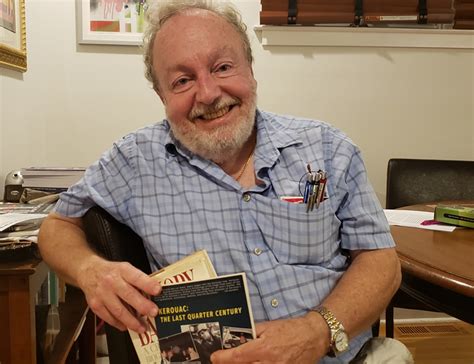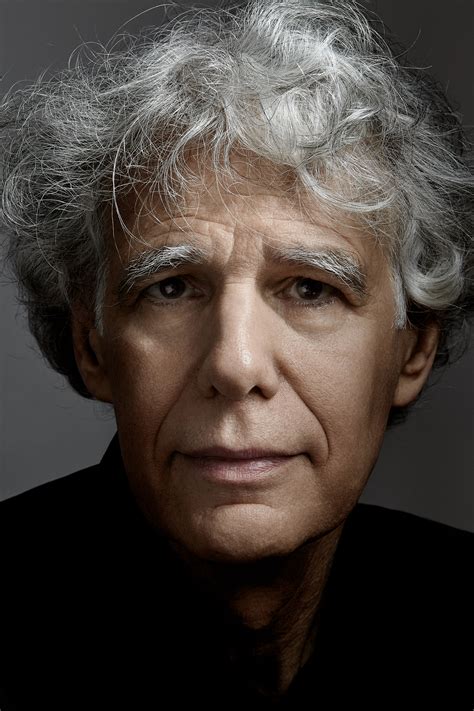A Quote by Gerald Nicosia
Kerouac's books portray a hero and narrator free and easy, confident, sure of his rebellion against the American system. In reality, Jack was torn between Catholicism, Buddhism, and his own demon-driven pursuit of kicks, between spirit and flesh, between mom's house and the Beat coffeehouse, patriotism and subversion, men and women, society and solitude, carousing and meditation, sacred and profane, secular and divine. It's a miracle he survived as long as he did.
Quote Topics
Against
American
Beat
Between
Books
Buddhism
Catholicism
Confident
Demon
Did
Divine
Driven
Easy
Flesh
Free
Hero
His
House
Jack
Kicks
Long
Meditation
Men
Men And Women
Miracle
Mom
Narrator
Own
Patriotism
Portray
Profane
Pursuit
Reality
Rebellion
Sacred
Secular
Society
Solitude
Spirit
Subversion
Sure
Survived
System
Torn
Women
Related Quotes
Jack Kerouac seems to have been preoccupied with the question of duality from a very young age. He seemed to feel that there was more than one person inside him. Indeed he would veer from friendly, open and so on to someone who was angry. In a way, there was a swing also between his American self and what he later called his Franco-American older brother. There was a swing between the deeply introverted part of himself and the person he became out in the world, having to act in an extroverted way.
The difference between Pound and Whitman is not between the democrat who in deep distress could look hopefully toward the future and the fascist madly in love with the past. It is that between the woodsman and the woodcarver. It is that between the mystic harking back to his vision and the artist whose first allegiance is to his craft, and so to the reality it presents.
The struggle between God and man breaks out in everyone, together with the longing for reconciliation. Most often this struggle is unconscious and short-lived. A weak soul does not have the endurance to resist the flesh for very long. It grows heavy, becomes flesh itself, and the contest ends. But among responsible men, men who keep their eyes riveted day and night upon the Supreme Duty, the conflict between flesh and spirit breaks out mercilessly and may last until death.
For him who is perfect in love and has reached the summit of dispassion there is no difference between his own or another's, or between Christians and unbelievers, or between slave and free, or between male and female. But because he has risen above the tyranny of the passions and has fixed his attention on the single nature of man, he looks on all in the same way and shows the same disposition to all. For in him there is neither Greek nor Jew, male nor female, bond not free, but Christ who 'is all, and in all' (Col. 3:11; cf. Gal. 3:28).
We think that we live in a heterosexual society because most men are fixated on women as sexual objects; but, in fact, we live ina homosexual society because all credible transactions of power, authority, and authenticity take place among men; all transactions based on equity and individuality take place among men. Men are real; therefore, all real relationship is between men; all real communication is between men; all real reciprocity is between men; all real mutuality is between men.
We must remember that there is a great difference between a myth and a miracle. A myth is the idealization of a fact. A miracle is the counterfeit of a fact. There is the same difference between a myth and a miracle that there is between fiction and falsehood -- between poetry and perjury. Miracles belong to the far past and the far future. The little line of sand, called the present, between the seas, belongs to common sense to the natural.
Man is not by any means of fixed and enduring form (this, in spite of suspicions to the contrary on the part of their wise men, was the ideal of the ancients). He is nothing else than the narrow and perilous bridge between nature and spirit. His innermost destiny drives him on to the spirit and to God. His innermost longing draws him back to nature, the mother. Between the two forces his life hangs tremulous and irresolute.
A weak soul does not have the endurance to resist the flesh for very long. It grows heavy, becomes flesh itself, and the contest ends. But among responsible men, men who keep their eyes riveted day and night upon the Supreme Duty, the conflict between flesh and spirit breaks out mercilessly and may last until death.
A society that robs an individual of the product of his effort, or enslaves him, or attempts to limit the freedom of his mind, or compels him to act against his own rational judgment-a society that sets up a conflict between its edicts and the requirements of man’s nature—is not, strictly speaking, a society, but a mob held together by institutionalized gang-rule.
The frontiers are not east or west, north or south; but wherever a man fronts a fact, though that fact be a neighbor, there is anunsettled wilderness between him and Canada, between him and the setting sun, or, farther still, between him and it. Let him build himself a log house with the bark on where he is, fronting IT, and wage there an Old French war for seven or seventy years, with Indians and Rangers, or whatever else may come between him and the reality, and save his scalp if he can.
































